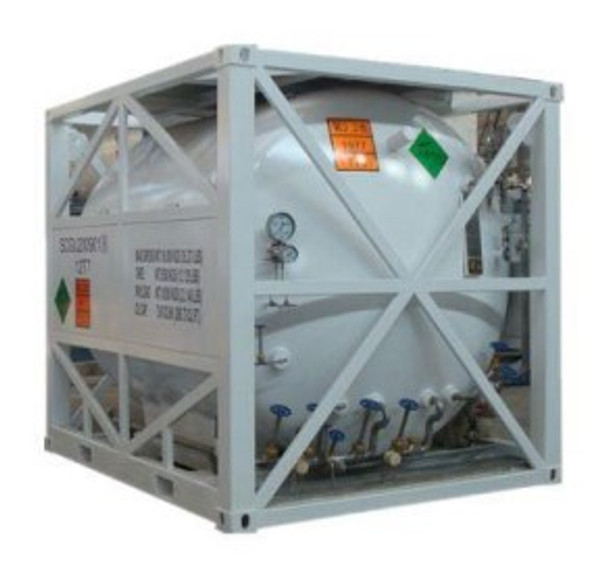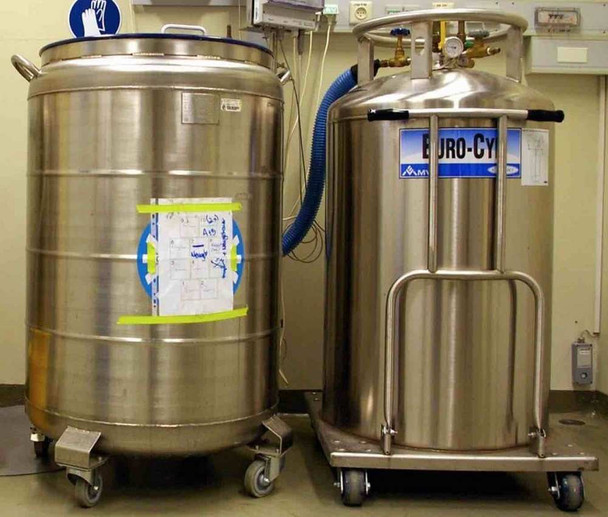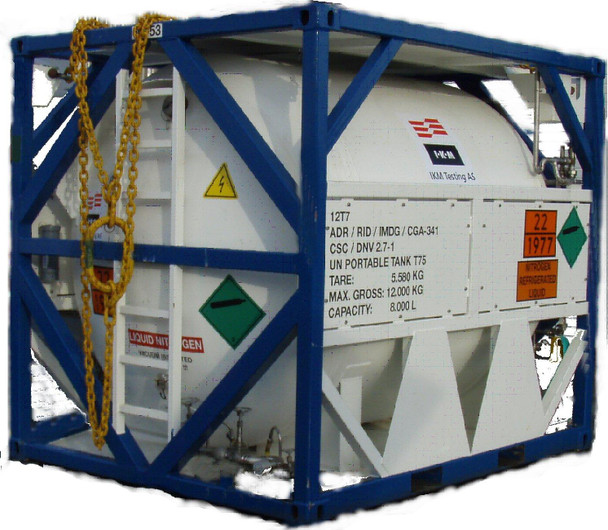Understanding the Use of Liquid Nitrogen in Nigeria: Applications and Benefits
Key Takeaway:
Liquid nitrogen has emerged as a transformative tool in Nigeria, offering a spectrum of applications and benefits across industries. From revolutionizing food preservation and healthcare to enhancing manufacturing processes and scientific research, its versatile properties are driving innovation and progress in the nation, paving the way for a more efficient and sustainable future.
Introduction
In recent years, the utilization of liquid nitrogen has gained significant attention in Nigeria, marking a remarkable shift in various industries and scientific fields. As this versatile and powerful cryogenic substance finds its place in an array of applications, it becomes crucial to delve into its uses and the associated benefits it brings to the Nigerian landscape. From enhancing industrial processes to revolutionizing medical and scientific advancements, the widespread adoption of liquid nitrogen promises to reshape the way we approach various sectors in the country.
One of the most common uses of liquid nitrogen is in cryogenic freezing. It is employed in the food industry to quickly freeze food products like vegetables, meats, and seafood. Rapid freezing helps preserve the quality and freshness of these items while extending their shelf life. It is also used in Metalworking and Machining; Liquid nitrogen is used for cryogenic cooling during metalworking processes. When sprayed or immersed, it can reduce the temperature of metal parts quickly, making them more brittle and easier to machine or cut. This enhances precision in manufacturing processes.
In this exploration, we will embark on a journey to comprehend the multifaceted applications and far-reaching advantages of liquid nitrogen in Nigeria, shedding light on the exciting potential it holds for the nation's progress and development. Continue reading to learn more.
Cryogenic Offshore Tank for Liquid Nitrogen 8,000 Liters
Applications of Liquid Nitrogen in Nigeria
Liquid nitrogen's remarkable properties make it indispensable in various industrial, medical, agricultural, and scientific applications in Nigeria.
A. Industrial Applications
- Food Preservation: In Nigeria, liquid nitrogen plays a pivotal role in food preservation. The rapidly plummeting temperatures of liquid nitrogen allow for quick freezing of perishable goods, extending their shelf life while preserving their taste and nutritional value. This is particularly vital in a country where agriculture is a significant economic driver.
- Electronics Manufacturing: The electronics industry in Nigeria benefits from liquid nitrogen in the manufacturing process. It is used for cooling electronic components during soldering and welding. The extreme cold helps prevent damage to sensitive electronic parts and ensures precision in manufacturing.
- Metalworking: Metalworking and fabrication industries in Nigeria employ liquid nitrogen for a process known as cryogenic treatment. This involves exposing metal components to extremely low temperatures, which enhances their hardness and durability. It is especially useful in tool and die production, where wear resistance is crucial.
B. Medical and Healthcare Applications
- Cell and Tissue Storage: Liquid nitrogen is invaluable in the medical field for the preservation of biological materials. In Nigeria, it is used to store cells, tissues, and even genetic material. This is particularly important in the context of medical research, organ transplantation, and the development of advanced treatments.
- Dermatology: Dermatologists in Nigeria utilize liquid nitrogen for cryotherapy, a procedure used to treat various skin conditions. By applying liquid nitrogen to skin lesions such as warts, skin tags, and precancerous lesions, dermatologists can effectively remove these growths with minimal scarring.
- Organ Transplantation: Organ transplantation is a critical medical procedure that requires the preservation of organs before transplantation. Liquid nitrogen is used to keep organs at extremely low temperatures, slowing down metabolic processes and increasing the viability of donated organs. This improves the chances of successful organ transplants in Nigeria.
C. Agricultural Applications
- Livestock Breeding: In the agricultural sector, liquid nitrogen is a game-changer for livestock breeding. It is used to cryogenically preserve semen and embryos from valuable livestock, ensuring the preservation of desirable genetic traits. This technique contributes to the improvement of livestock quality in Nigeria.
- Food Freezing: Beyond preserving crops, liquid nitrogen is employed to flash-freeze fruits and vegetables, maintaining their freshness and quality. This is especially crucial for food processing and export industries, where maintaining the integrity of food products is paramount.
D. Scientific Research
- Laboratory Uses: Liquid nitrogen is a staple in scientific laboratories across Nigeria. It is used for a wide range of applications, including cooling and preserving sensitive samples, creating extremely low-temperature environments for experiments, and supporting various analytical instruments.
- Experimental Applications: Researchers often rely on liquid nitrogen for conducting experiments in fields like physics, chemistry, and biology. Its ability to achieve extremely low temperatures allows scientists to explore new frontiers in their respective disciplines, pushing the boundaries of knowledge.
Liquified Nitrogen (storage for Liquid Nitrogen)
Benefits of Using Liquid Nitrogen in Nigeria
Liquid nitrogen, with its exceptional properties and versatility, brings a multitude of benefits to various sectors in Nigeria, fostering progress and development in the country.
A. Enhanced Efficiency in Industries
- Food Industry Advancements: Liquid nitrogen enables rapid freezing of food products, preserving their quality and extending shelf life. This contributes to reducing food wastage and improving food supply chains, a crucial factor in Nigeria's agriculture-driven economy.
- Manufacturing Precision: Industries such as electronics and metalworking benefit from the use of liquid nitrogen in cooling processes. It helps achieve precision in manufacturing by preventing overheating and ensuring the accurate fabrication of intricate components.
- Energy Efficiency: Liquid nitrogen can be used for cooling and refrigeration in industrial processes, reducing the energy consumption of traditional refrigeration systems. This energy efficiency contributes to cost savings and reduced environmental impact.
B. Improved Healthcare and Medical Research
- Biological Sample Preservation: Liquid nitrogen plays a pivotal role in preserving biological samples, including cells, tissues, and genetic materials. This is essential for medical research, diagnostics, and advancements in healthcare treatments in Nigeria.
- Dermatology and Medical Procedures: In the field of dermatology, liquid nitrogen is used for cryotherapy to treat various skin conditions. This non-invasive technique is effective in Nigeria's healthcare system for the removal of warts, skin tags, and precancerous lesions.
- Organ Transplant Success: Liquid nitrogen's cryogenic properties aid in organ transplantation by preserving organs at extremely low temperatures, increasing their viability and enhancing the success rate of transplant procedures.
C. Agriculture Advancements
- Livestock Improvement: The cryopreservation of semen and embryos using liquid nitrogen contributes to the improvement of livestock genetics in Nigeria. This technology allows farmers to breed superior livestock, enhancing the overall quality of the agricultural sector.
- Food Preservation and Export: Liquid nitrogen's rapid freezing capabilities help maintain the quality of agricultural products like fruits and vegetables. This not only reduces food wastage but also opens up opportunities for export, boosting Nigeria's agricultural exports.
D. Scientific Advancements
- Laboratory Research: Liquid nitrogen is a fundamental tool in scientific laboratories across Nigeria. It enables researchers to conduct experiments that require ultra-low temperatures, leading to breakthroughs in physics, chemistry, biology, and other scientific disciplines.
- Materials Research: In materials science, liquid nitrogen is used to study the properties of materials at extreme temperatures. This contributes to the development of new materials and technologies with various applications.
E. Environmental Considerations
- Reduced Environmental Impact: Liquid nitrogen offers an environmentally friendly alternative for cooling and refrigeration in industrial processes. Its use can contribute to reducing greenhouse gas emissions and environmental pollution in Nigeria.
- Sustainable Agriculture: By improving agricultural practices, liquid nitrogen helps make farming more sustainable. This is particularly important in Nigeria, where agriculture is a vital sector of the economy.
High Quality Cryogenic Offshore Tank for Liquid Nitrogen
Safety Precautions when using Liquid Nitrogen
While liquid nitrogen offers a wide array of benefits and applications in Nigeria, it also presents several challenges and safety concerns that must be addressed.
A. Handling and Storage Precautions
- Extreme Cold Hazard: Liquid nitrogen is extremely cold and can cause severe frostbite or cryogenic burns if it comes into contact with the skin or eyes. Safety measures include wearing appropriate personal protective equipment, such as insulated gloves and goggles, when handling liquid nitrogen.
- Pressure Hazards: When stored in sealed containers, liquid nitrogen can build up pressure as it evaporates. If not properly vented or if containers are damaged, this pressure can lead to explosions. Safe storage and handling procedures are essential to mitigate this risk.
- Oxygen Depletion: When liquid nitrogen evaporates in a confined space, it displaces oxygen, potentially leading to oxygen-deficient atmospheres. Adequate ventilation and monitoring are crucial to prevent asphyxiation.
B. Environmental Impact
- Release of Nitrogen Gas: Liquid nitrogen primarily consists of nitrogen gas, which is inert and non-toxic. However, if released in large quantities, it can displace oxygen in the surrounding area, posing a risk to humans and animals. Care must be taken to prevent nitrogen gas leaks.
- Energy Consumption: The production of liquid nitrogen typically requires a considerable amount of energy, often derived from fossil fuels. In Nigeria, where energy resources are valuable, the energy footprint of liquid nitrogen production is a relevant environmental consideration.
C. Cost Considerations
- Production Costs: The production of liquid nitrogen involves specialized equipment and energy-intensive processes. Ensuring a consistent and affordable supply of liquid nitrogen can be a challenge, particularly for smaller businesses and industries in Nigeria.
- Safety Measures Costs: Implementing safety measures, including the purchase of safety equipment and training for personnel, adds to the overall cost of using liquid nitrogen in various applications.
- Environmental Compliance: Compliance with environmental regulations and safety standards can lead to additional expenses for businesses using liquid nitrogen.
Conclusion
The use of liquid nitrogen in Nigeria emerges as a pivotal force, revolutionizing industries, healthcare, agriculture, and scientific research. Its ability to enhance efficiency, preserve vital resources, and drive advancements in various sectors underscores its profound significance.
The transformative potential of liquid nitrogen in Nigeria is nothing short of extraordinary. From catalyzing agricultural productivity to enabling groundbreaking scientific discoveries, its versatility paves the way for a future marked by innovation and sustainable development.
As Nigeria continues its journey towards progress and prosperity, the role of liquid nitrogen is poised to expand further. With ongoing research and innovative applications, we can anticipate even more dynamic contributions to the nation's growth. The outlook is bright, promising a future where liquid nitrogen continues to shape and elevate diverse aspects of Nigerian society.
Related Article:
Nitrogen Purging vs. Flushing: Differences, Pressures, and Potential Disadvantages Explained
Recent Posts
-
How to Choose the Right Surface Maintenance Solutions for Your Needs
Surface maintenance solutions encompass a diverse range of products, techniques, and services aimed …May 15, 2024 -
The Definitive Guide to Protective Coatings: Types, Applications, and Benefits
Diverse Coating Types: Understanding the variety of protective coatings, such as epoxy, polyurethane …May 15, 2024 -
Types of Surfaces: Common Maintenance Challenges and Solutions
Maintaining the various types of surfaces within a property, whether commercial or residential, is v …May 13, 2024






